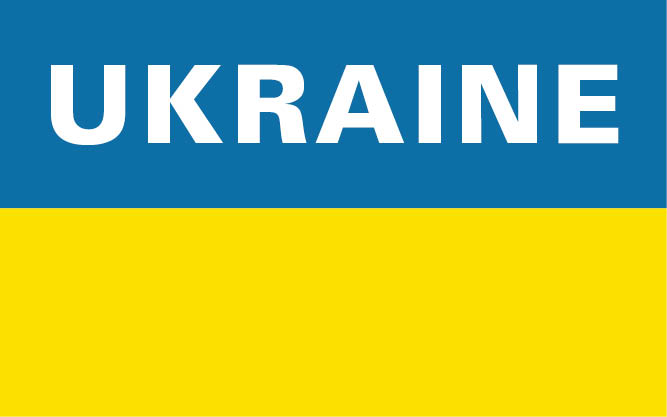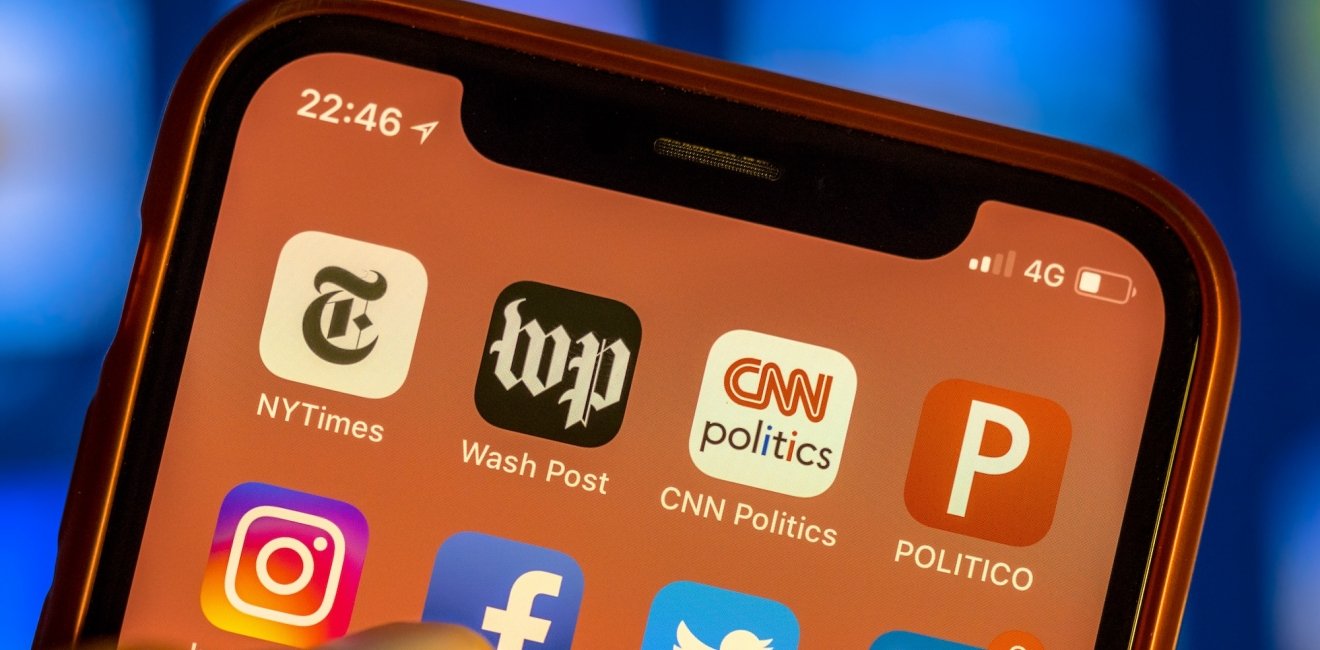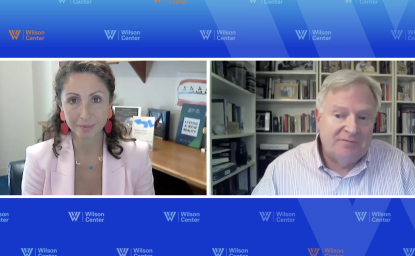Hamas' unprecedented attack on Israel on October 7 and the ongoing Hamas-Israel war in Gaza have again denoted the overwhelming impact of disinformation and misinformation in the digital age. With over 5,000 lives lost, the dissemination of false information, often through social media platforms, has not only added to the chaos but has also exacerbated the emotions of millions across the planet.
While social media platforms offer immediate access to information, they also serve as fertile ground for spreading falsehoods, making it challenging for the public to distinguish fact from fiction. The role of platform owners, content moderation, and regulatory measures is now under scrutiny as we grapple with the implications of disinformation during a devastating conflict.
In the aftermath of the Hamas' attack, the digital landscape became the epicenter of a disinformation pandemic
False information in conflict
In the aftermath of the Hamas' attack, the digital landscape became the epicenter of a disinformation pandemic. While there are numerous instances, some garnered more attention than others. A recent case involved the distribution of videos supposedly portraying an Israeli air assault. However, it became evident upon closer scrutiny that these videos had been extracted from video games, notably Arma 3. The interesting twist is how swiftly this facade was unveiled. It wasn't just the game's developers who stepped forward but also a community of online users intimately familiar with the game. Nevertheless, the fabricated imagery continued to thrive.
Those with more insidious motivations went well and beyond and created a fake White House announcement. An image resembling a screenshot of a supposed White House document suggested that Israel was being provided with $8 billion in aid, implying that this would hinder aid for Ukraine. Although the White House denied issuing any such statement, the fabricated image continued to spread.
Mainstream media outlets also experienced their fair share of fake footage. A manufactured video claimed to show a BBC report declaring that weapons provided by NATO to Ukraine had been sold to Hamas. The circulation of the content continued to spread despite the BBC denying the existence of such a report. Last but not least, the US Embassy in Lebanon had to put out a statement denying that the embassy was being evacuated after false reports garnered attention online.
Even the US President is not immune to disinformation. The White House had to retract President Joe Biden's statement stating he saw images of children beheaded by Hamas during a meeting with Jewish leaders at the White House. However, the White House clarified that these images were based on reports from Israeli government officials and media, and they had not been independently verified. These unverified claims gained traction online, further intensifying the high emotional tensions.
In the recent al-Ahli hospital explosion in Gaza, a misleading video circulated online, falsely claiming that it showed a failed Hamas rocket hitting the hospital. This video, initially from 2022, had no direct connection to the recent hospital incident. This episode also highlights the danger of disinformation during crises, especially those involving civilian casualties and war crimes, as it can inflame emotions and lead to hasty judgments, fueling online debates and deepening divides.
Fueling the disinformation Fire on “X”
The role of Elon Musk and his platform X (formerly Twitter) in the increase of disinformation during the Israel-Hamas war merits particular attention. Musk has faced criticism for the platform's handling of disinformation since he purchased the company. Musk's declared commitment to freedom of expression and his platform's transformation into X have raised concerns about spreading conspiracy theories and antisemitism.
In fact, Musk and Israeli Prime Minister Benjamin Netanyahu met and discussed the issue of antisemitism on X only recently. Experts attribute the proliferation of disinformation on X during the conflict to Musk's changes over the past year, including the decision to disband the company’s Trust and Safety Council responsible for content moderation. The platform's focus has shifted from verifying facts to maximizing view counts, possibly incentivizing users to share information without considering its trustworthiness.
In addition, the algorithm on X has been modified to prioritize posts with the maximum engagement, encouraging insidious users to share disinformation since dramatic and shocking content often performs exceptionally well, therefore distorting reality. Engagement with conflict-related images and videos creates a strong incentive for individuals pushing specific narratives to share old footage from unrelated events. Posts from X users with premium subscriptions (marked by a blue checkmark) were boosted to the top of users' news feeds. While the blue checkmark was initially intended to foster a better user experience, it inadvertently led to the elevation of unverified and misleading content. Such content often garnered hundreds of thousands of views and engagements, spreading fabrications at an unparalleled pace.
While X has garnered significant attention, other platforms such as TikTok, YouTube, and Telegram have also struggled with false information regarding the Israel-Hamas war
While X has garnered significant attention, other platforms such as TikTok, YouTube, and Telegram have also struggled with false information regarding the Israel-Hamas war. Similar to previous crises, content from the conflict initially appeared on encrypted messaging platforms like Telegram. While Telegram can serve as a primary source for footage, the lack of vetting and fact-checking on such media means that information can and is often taken out of context when shared on platforms like X. This prevalent problem underlines the challenges of addressing disinformation, as it often gains prominence due to its ability to elicit strong reactions and go viral. Each of these platforms has the power to shape public perception beyond the digital realm, potentially influencing geopolitical outcomes.
The EU Crackdown on Social Media Giants
The European Union is cracking down on tech giants to curb the rampant spread of disinformation across social media platforms. Mark Zuckerberg's Meta, the conglomerate that owns Facebook and Instagram, has been served an injunction: comply with European law within 24 hours or face the consequences. X didn't escape the EU's crosshairs either. Thierry Breton, the EU's industry chief, has urged Meta and X to demonstrate "timely, diligent, and objective action" to combat the spread of disinformation. He had given them just one day to provide a detailed account of the "proportionate and effective" measures they had taken.
Breton has demanded that Meta uphold its end of the bargain. The company has responded by setting up a special operations center to monitor and counter the evolving situation. Still, the EU insists that the response must be comprehensive and swift. This isn't just a warning shot; it's part of a broader effort to enforce the EU's Digital Services Act (DSA), designed to protect users on these massive tech platforms. This law has already come into force, with firms being granted time to ensure their systems comply. But as of late August 2023, the strictest rules are now in play for platforms with over 45 million EU users, including X.
Musk's X or Zuckerberg's Meta are not the only companies facing the EU's scrutiny. Breton has written warning letters to the CEOs of other companies, such as TikTok. However, no formal probes have been initiated yet except for announcing the investigation of X. The EU's stance underscores the global battle against disinformation, especially during critical conflicts like the Israel-Hamas war. Musk's response, demanding evidence of violations, echoes a growing debate about the balance between freedom of expression and the responsibility of tech companies to protect the public from false information and hate speech.
It is a well-known fact that false information has the potential to influence public opinion, create confusion and fear, and even shape government policies
Navigating the Disinformation Dilemma
It is a well-known fact that false information has the potential to influence public opinion, create confusion and fear, and even shape government policies. This confusion can hinder informed decision-making. Manipulative content often stokes strong emotions like anger, fear, or sympathy. These emotions can be redirected to serve a specific agenda, often by insidious actors. Yet even more daunting is that false information involving multiple nations can strain international relations.
As the EU pushes for transparency and accountability from tech giants, this serves as a stark reminder that the era of self-regulation in the tech world might be, and more importantly, should be coming to an end. The EU's enforcement of the DSA isn't just a regulatory maneuver, it's a battle to safeguard democracy and public discourse during times of crisis. In the era of instant information sharing, platforms must act swiftly and decisively to counter disinformation. As these examples show, there have never been more drastic consequences than with the Israel-Hamas war, where every post, claim, or video, even complete fabrications, could potentially widen the present conflict and inflict actual suffering.
The views expressed in these articles are those of the author and do not reflect an official position of the Wilson Center.








